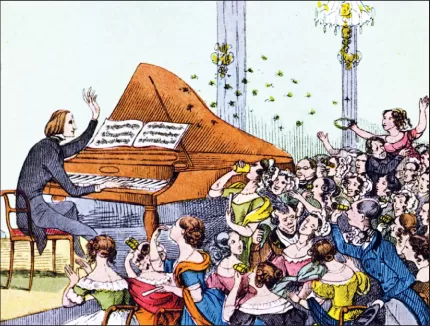Reading time: 4 minutes |
As a composer in my professional life, I know the challenges and rewards that come with composing music. At A Level, the composition component is not just about writing a piece of music, it’s also an opportunity to express yourself while showing technical and creative skills. Here are some essential tips and strategies to help you succeed in your A Level composition.

1. Understand the Assessment Criteria
I always start with the marking rubrics with students. Familiarising yourself with the assessment criteria is important because each exam board may have slightly different expectations, but they generally focus on:
- Creativity: Your ability to generate original ideas.
- Technical Skill: Proficiency in handling techniques and musical elements.
- Structural Awareness: The ability to organise your ideas into a coherent form.
I’d highly recommend that you review the specific criteria for your chosen exam board carefully (AQA, Edexcel, OCR, etc.) to ensure you are meeting their requirements. It’s all about playing by their rules!
2. Develop Your Musical Ideas
Start with a strong idea or concept for your composition. This could be a melody, a harmonic progression, a rhythmic motif, or even a narrative expressed in words. Here are a few other ways to nurture your ideas:
- Inspiration: Listen to a wide range of music. To a certain extent, music composition is all about absorbing other music and restructuring it into your own music. Take note of what resonates with you and consider how you can make use of similar techniques.
- Improvisation: composition is a slow form of improvisation. It’s useful to experiment your ideas on your primary instrument (or for the tech-savvy, in Logic Pro). This may lead to unexpected and innovative ideas – sometimes when you accidentally play some really nice “wrong notes”.
- Sketching: Jot down ideas as they come to you. Musical ideas can come and go really fast. Sketching can help you capture them without having to worry about notation. Legend has it that Johann Strauss II famously jotted down the melody for “The Blue Danube” on a handkerchief…
3. Master Compositional Techniques
In you have time, look into other resources that may better your music theory or composition craft (youtube is a good resource too!), such as:
- Harmony: Understanding how to use chords effectively and explore harmonic progressions will enhance your work. If you’re writing tonal music, then it’s all about expectation (diatonic chords) and surprises (chromatic harmony) – a good balance of these chords will make your music more interesting. Even Mozart was doing it, see here.
- Melody and Counterpoint: This is the art of notes against notes. It follows specific rules, and understanding these can improve your compositions a great deal, whether you’re writing tonal or atonal music – you basically break the rules in the latter… start by looking at some music by the Italian master of counterpoint, Patestrina.
- Texture and Timbre: Timbre has become more and more important over the course of music history. For classical music, it’s all about how you use the instrument or combine different instrumental colours, whereas in pop music it often involves tweaking the sonority using techniques like EQ, distortion, modulation, etc.. Experiment with different timbres – Ravel wrote his famous Bolero with basically 2 tunes.
4. Focus on Structure
Some say form is simply whatever has happened. It’s true, but A Level is a little more specific. Your piece should demonstrate a good structure that brings clarity and impact. Consider the following:
- Form: learn about the common musical forms (e.g., binary, ternary, sonata form) and choose one that suits your ideas – it does not mean you have to follow them, more often than not, you should actually deviate from them. That’s what makes your piece more interesting.
- Balance and Pacing: Ensure your composition has a balance of different sections. By “balance”, it’s not just about the objective proportion of a golden ratio, but the psychological impact that it gives to the listeners. Think of it like a film script – it needs some form of build up, climax, and resolution – and you need to tell the story with the right method and pace out the events well
6. Seek Feedback
A fresh pairs of eyes and ears is always more useful than you think. Don’t hesitate to share your work with peers, teachers, or mentors, as they can often provide feedback and valuable insights. Even non-musically trained people can often give very useful feedback – in fact, I love them because they are not burdened by the history of classical music and often say things outside of our expectation…! Consider:
- Workshops and Peer Reviews: Participate in workshops or group sessions where you can present your compositions and receive feedback. It might be useful to work closely with the performer for technical matters too, if available.
- One-on-One Guidance: Seek feedback from a music tutor or teacher who can offer specific advice tailored to your needs. Great if your school teacher is already offering this.
7. Use Technology Wisely
Remember to use music technology too. A recorder can capture ideas you hum casually, or use software like Logic Pro, Sibelius, Dorico, or MuseScore to test out your ideas and experiment with them. In any case, using technology should allow you to:
- Hear Your Work: Capture your ideas and listen back to see if they work or require further tweaks.
- Experiment with Instrumentation: Use virtual instruments to explore different sound combinations and arrangements – this is particularly useful in Logic Pro, but you can also incorporating better sound libraries in Sibelius or Dorico – it comes at a cost though!
Conclusion
Excellence in the A Level Music composition component requires a blend of creativity, technical skill, and structured planning. Understanding the assessment criteria, developing your musical ideas, mastering compositional techniques, focusing on structure, and reflecting on your process will all help you to create a compelling and original composition.
If you’re looking for personalised guidance in your composition journey, I offer tailored A Level Music tuition, covering all exam boards including AQA, Edexcel, Cambridge International, OCR, and more. Feel free to get in touch at any time.


